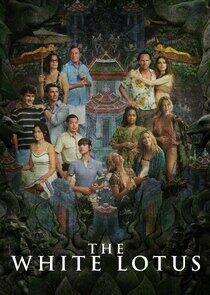
Loretta Young
Born in Salt Lake City, Utah to a Catholic family, Young moved with her mother and two elder sisters to Hollywood, California in 1916 at the age of three and soon began her career as a child extra in silent films. She made uncredited appearances in the films Naughty but Nice (1927) and The Whip Woman (1928), and her breakthrough came in the 1928 drama Laugh, Clown, Laugh. Young's career blossomed as she transitioned from bit parts to ingénues and leading ladies. She starred in over 60 films in the 1930s, including Platinum Blonde (1931), Life Begins (1932), Zoo in Budapest (1933), Born to Be Bad (1934), Call of the Wild and The Crusades (both 1935), The Unguarded Hour (1936), Cafe Metropole (1937), and Suez (1938). In 1939, Young rejected a five-year, $2 million contract with 20th Century Fox to work as a freelance actress. This led to her being blackballed by Hollywood studios for a short period.
In the 1940s, Young starred in as many as eight films a year, including He Stayed for Breakfast (1940), The Men in Her Life (1941), China (1943), Ladies Courageous and And Now Tomorrow (both 1944), Along Came Jones (1945), The Stranger (1946), The Perfect Marriage (1947), Rachel and the Stranger (1948), and The Accused (1949). She won the Academy Award for Best Actress for her performance in the comedy The Farmer's Daughter (1947), and received her second Academy Award nomination for her role as a nun in the comedy-drama Come to the Stable (1949). She then starred in Key to the City (1950), Cause for Alarm! and Half Angel (both 1951), Paula and Because of You (both 1952), and It Happens Every Thursday (1953; her final theatrical film appearance).
Young moved to the relatively new medium of television, where she had a dramatic anthology series, The Loretta Young Show, from 1953 to 1961. It earned three Primetime Emmy Awards, and was re-run successfully on daytime television and later in syndication. She also starred in The New Loretta Young Show from 1962 to 1963. In the 1980s, Young returned to television by starring in two made-for-TV films, Christmas Eve (1986), for which she won the Golden Globe Award for Best Actress – Miniseries or Television Film, and Lady in a Corner (1989). She narrated the documentary Life Along the Mississippi (1994), marking her last work credit.
In addition to her work in film and television, Young was passionate about charity and philanthropy. She supported many humanitarian organizations and often used her celebrity status to raise awareness for issues that mattered to her, including causes related to children, poverty, and the Catholic Church. She married three times and had three children, including Judy Lewis. In 2000, Young died of ovarian cancer in Los Angeles, California.
Biography from the Wikipedia article Loretta Young. Licensed under CC-BY-SA. Full list of contributors on Wikipedia.
Known For
Recently Updated Shows

MobLand
With the most powerful clients in Europe, MobLand will see family fortunes and reputations at risk, odd alliances unfold, and betrayal around every corner; and while the family might be London's most elite fixers today, the nature of their business means there is no guarantee what's in store tomorrow.
MobLand follows two generations of gangsters, the businesses they run, the complex relationships they weave and the man they call upon to fix their problem.

Daredevil: Born Again
Matt Murdock finds himself on a collision course with Wilson Fisk when their past identities begin to emerge.

The Studio
As movies struggle to stay alive and relevant, Matt and his core team of infighting executives battle their own insecurities as they wrangle narcissistic artists and craven corporate overlords in the ever-elusive pursuit of making great films. With their power suits masking their never-ending sense of panic, every party, set visit, casting decision, marketing meeting, and award show presents them with an opportunity for glittering success or career-ending catastrophe. As someone who eats, sleeps, and breathes movies, it's the job Matt's been pursuing his whole life, and it may very well destroy him.



